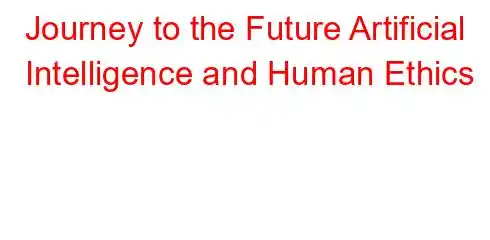Journey to the Future: Artificial Intelligence and Human Ethics
Artificial intelligence (AI) is a technology that enables computers to have human-like thinking and acting abilities. Artificial intelligence is rapidly developing in many areas today and affects many aspects of our lives. However, these developments also raise many ethical problems.
Artificial Intelligence and Human Ethics
Some ethical issues that arise with the development of artificial intelligence technologies may be:
- Autonomy: There are debates about how autonomous artificial intelligence systems should be in their decision-making processes. This problem, which we encounter especially in the field of automation and robotics, raises important questions about human control and responsibility.
- Data Privacy and Security: Artificial intelligence systems often require large amounts of data. This may raise concerns about data privacy and security. Ethical standards on how personal data will be protected and used should be determined.
- Bias and Discrimination: Artificial intelligence systems can learn biases and discrimination in the data they are trained on. This situation may create problems with social justice and equality. Ethical standards must be determined for artificial intelligence systems to be impartial and fair.
The Relationship between Artificial Intelligence and Humanity
While artificial intelligence technologies offer many opportunities for humanity, they also present some dangers. For this reason, ethical rules and guidelines should be determined to increase the positive effects of artificial intelligence developments for humanity and minimize their negative effects.
Journey to the future can help us build a better future for humanity by focusing on the ethical dimensions of artificial intelligence.
Read: 0


